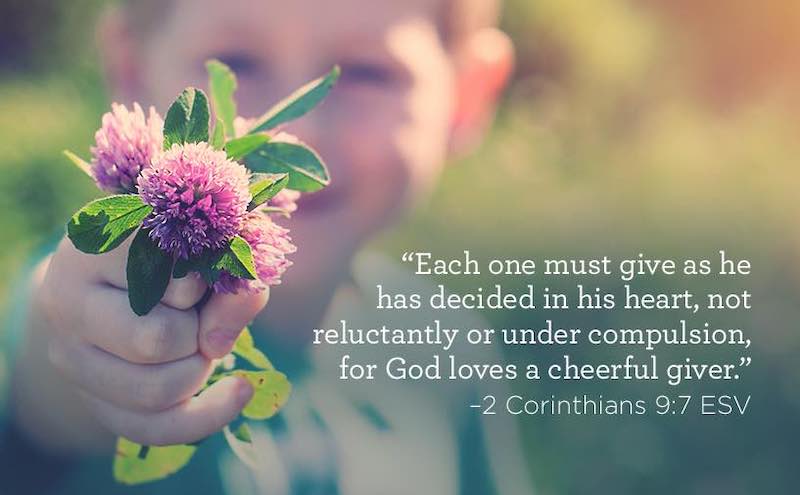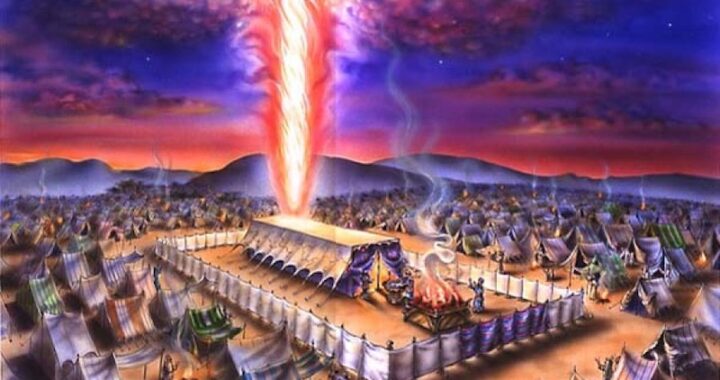Upon what was the Tabernacle built?
What was the foundation of the Tabernacle?
Moses was on the mountain with the LORD for forty days and forty nights (Ex. 24:18). According to the biblical text, it was at that time that the LORD gave Moses instructions regarding how to build the sanctuary where the LORD Himself would dwell in the midst of the Israelites:
Then the LORD spoke to Moses, saying, “Tell the sons of Israel to raise a contribution for Me; from every man whose heart moves him you shall raise My contribution. This is the contribution which you are to raise from them: gold, silver and bronze, blue, purple and scarlet material, fine linen, goat hair, rams’ skins dyed red, porpoise skins, acacia wood, oil for lighting, spices for the anointing oil and for the fragrant incense, onyx stones and setting stones for the ephod and for the breastpiece. Let them construct a sanctuary for Me, that I may dwell among them. According to all that I am going to show you, as the pattern of the tabernacle and the pattern of all its furniture, just so you shall construct it.” – Ex. 25:1-9
The LORD asked for very specific materials to be given for the building of His “sanctuary” – מקדש – Mikdash, which He also calls the “tabernacle” – משכן – Mishkan. This word Mishkan (Tabernacle) literally means dwelling place or abode. It was by means of the Tabernacle that the LORD would dwell with His people on earth.
The next several chapters (in fact, the remaining book of Exodus from chapter 25) focus on the details and construction of the Tabernacle. Although the Tabernacle was built to be a movable structure, it is extremely important to understand the foundation upon which the Tabernacle was to be built. What was the foundation of the Tabernacle?
The Foundation of the Tabernacle
The very first words of instruction that God gave to Moses for the Israelites regarding the Tabernacle was the following sentence:
Tell the sons of Israel to raise a contribution for Me; from every man whose heart moves him you shall raise My contribution. – Ex. 25:2
God asked the people to freely give a contribution of the needed items as a gift to Him. God’s Tabernacle was not to be built by means of a forced tax or a wealthy one-time donation, but rather, through a free-will offering. It can be understood that the contribution of the needed items for the Tabernacle was the very foundation upon which it was built!
The word for “contribution” in these verses is the Hebrew word תרומה – Terumah which means a contribution or a free-will offering. The LORD invited His people to actively and sacrificially participate in the special sanctuary that would be built as a dwelling place for God.
A Generous Heart
As a means of emphasizing the nature of the free-will offering that God invited His people to give on behalf of the Tabernacle, the LORD added the following qualifying statement: “…from every man whose heart moves him you shall raise My contribution.” (Ex. 25:2) The active word in the phrase “whose heart moves him” is the Hebrew word ידבנו – Yidvenu. The root of this word is נדב – Nadav which means to offer freely or willingly and in the noun form has the meaning of generosity. God was not forcing the people to give, but rather, He was inviting anyone who so desired to come and give from a heart of generosity.
This standard of generosity is the same expectation that we see in the New Testament when the apostle Paul taught on this subject of giving:
Each one must do just as he has purposed in his heart, not grudgingly or under compulsion, for God loves a cheerful giver. – 2 Corinthians 9:7
As the apostle Paul and others were building up the body of Messiah throughout the Mediterranean area in the first century, they collected gifts from individual local gatherings of believers to share with others. Paul invited the believers at Corinth to give generously from a willing heart.

The Foundation of the Two Temples
In studying and preparing for this article on the foundation of the Tabernacle I noticed that the Hebrew verb נדב – Nadav – “to offer willingly” is only used 18 times in the Scriptures. Outside of our text here in Exodus 25, it is predominately used in connection to the Temple of the LORD in Jerusalem which was built twice. When the first Temple was built we read the following about the materials needed for its construction:
Then the rulers of the fathers’ households, and the princes of the tribes of Israel, and the commanders of thousands and of hundreds, with the overseers over the king’s work, offered willingly; and for the service for the house of God they gave 5,000 talents and 10,000 darics of gold, and 10,000 talents of silver, and 18,000 talents of brass, and 100,000 talents of iron.Whoever possessed precious stones gave them to the treasury of the house of the Lord, in care of Jehiel the Gershonite. Then the people rejoiced because they had offered so willingly, for they made their offering to the Lord with a whole heart, and King David also rejoiced greatly. – 1 Chronicles 29:6-9
Each highlighted phrase in orange shows were the word Nadav is used to express the willing hearts of the people to give toward the dwelling place of God, the Temple. Then four hundred years later, that first Temple was destroyed by the Babylonians. However when the Jewish people returned to Jerusalem after 70 years, we see that same generous spirit when they rebuilt the Temple:
Some of the heads of fathers’ households, when they arrived at the house of the Lord which is in Jerusalem, offered willingly for the house of God to restore it on its foundation. – Ezra 2:68
Generosity and the willing hearts of the people were the solid foundation of the physical structures of the Tabernacle and the two Temples. Obviously, I am using this word foundation in a symbolic sense, however, it is amazing to see how this same foundation of willing hearts and generosity were the means of establishing the unique place where God made His abode on earth. The relationship of the God of the Bible with His people is based on His holiness and a willing people to worship Him!
The Foundation of a Willing Heart
The project in Exodus 25 was the Tabernacle – המשכן – the Mishkan and the LORD invited anyone and everyone from the camp of the Israelites to freely give of their resources, their time, their energy, and their skills to be part of the initial construction of the physical location where God’s presence would dwell with His people on earth.
It is vital to see the heart of God in this invitation to the people of Israel because too often we view the relationship with God in the Old Testament as a black and white relationship of the Law and the commandments. Within the framework of the Law, the LORD invited His people to know Him, to follow Him, to worship Him, and to voluntarily walk with Him as His unique people on this earth. Is this really all that different from the invitation that God offers to humanity today?
An Invitation from The Messiah
In the same manner that the LORD invited the people of Israel to participate in the building of the Tabernacle 3500 years ago through willing hearts, God invites each one of us today to come to Him through our own volition. Yeshua made the following invitation to His listeners 2000 years ago:
All things have been handed over to Me by My Father; and no one knows the Son except the Father; nor does anyone know the Father except the Son, and anyone to whom the Son wills to reveal Him. “Come to Me, all who are weary and heavy-laden, and I will give you rest. Take My yoke upon you and learn from Me, for I am gentle and humble in heart, and you will find rest for your souls. For My yoke is easy and My burden is light.” – Matthew 11:27-30
God does not force us to worship Him through coercion and fear. God invites us to come to Him with a willing heart to know Him, to follow Him, and to walk together with Him.
The Foundation of a Willing Heart
The spiritual dwelling of God is continually being built-up through each and every one of us who accepts His invitation to be part of His Tabernacle. God does not need our gold, our silver, our sheep skins, or anything else. God wants our hearts and He wants us to enjoy being in His presence:
Yeshua answered and said to him, “If anyone loves Me, he will keep My word; and My Father will love him, and We will come to him and make Our abode with him….” – John 14:23
Just as the Tabernacle was built on the foundation of the willing hearts of the Israelites in order to receive God’s presence in their midst, so God continually offers His presence to us today through the invitation of Yeshua: to freely love Him and let Him abide in us by His Holy Spirit!
Shabbat Shalom!
If you enjoyed reading this article, share it today with friends! We also invite you to sign up for our weekly Torah Portion commentary on the sidebar to the right.
Help keep our weekly commentaries free and available to all. Click here to donate today:
*All Scripture take from NASB Copyright © 1960, 1962, 1963, 1968, 1971, 1972, 1973, 1975, 1977, 1995 by The Lockman Foundation
**The Hebrew name “Yeshua” is used in the biblical quotations in place of the English name “Jesus” to give emphasis to the meaning of this name, salvation. The word “Messiah” is also used in place of the word “Christ” to bring clarity to the office of Yeshua.



Hi Daniel, thanks again for your Torah portion and for sharing your talent – our weekly rite meanwhile:-).
In my opinion it`s an inspiring point to transfer the building of the temple to the temple of God in us. To ask: What can we give to God freely and daily (not gold, silver, … – but our thinking, our feelings and deeds), so that he is going to be able to build his temple in us?
All the best and have a blessed week, Daniel
Amen! Great question that we will each answer uniquely. May we continually ask the Lord and bring Him our all: “Therefore I urge you, brethren, by the mercies of God, to present your bodies a living and holy sacrifice, acceptable to God, which is your spiritual service of worship.” – Rom. 12:1